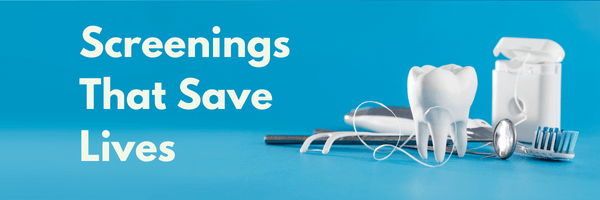.png)
Which States Have the Highest RDH & Dental Assistant Wages (& the Lowest)?
Posted February 12, 2019
As the demand for dental hygienists and assistants increases, wages are rising for dental hygienists and assistants. DentalPost’s 2023 Salary Report includes multiple income statistics, including income averages for the type of practice (specialist, general, private, corporate, and other), years of experience, region of the country, and by state (for states with 100 or more respondents).
Increasing Wages for RDHs and Dental Assistants
Year-over-year, between Q3 of 2021 to Q3 of 2022, the national average income of RDHs increased by 4.5%, from $70,067 in 2021 to $73,745 in 2022. The annual inflation rate for the United States was 6.5% for the 12 months ending December 2022. So, this was 2% higher than the average increase in RDH income. Half of all full-time dental hygienists earned $72,000 or more in 2022.
During this same period, the national average income of dental assistants increased by 7.5% from $39,071 in 2021 to $42,090 in 2022. Half of all full-time dental assistants earned $42,000 or more in 2022.
Due to population density and cost of living, a large wage variance occurs nationwide. If you are contemplating a move to a higher-paying state to maximize your earning potential, consider the local cost of living and the new state’s certification requirements.
Note For Future Dental Hygienists and Assistants
Salaries and hourly wages have been steadily increasing over the last four years. DentalPost’s Salary Report has the latest reported income data from thousands of hygienists and assistants who responded to the survey in August and September of 2022. Dental hygienists and assistants report they are highly engaged with their work because it is meaningful; they help improve the health and lives of people every day! It is stable work because your advancing knowledge and skills will always be in demand. In addition, when you need the flexibility to work fewer or more hours during the different phases of your life, you can work part-time, full-time, and even add on temp hours for appreciative providers who need your services.
Highest Paying Regions & States for Dental Hygienists
- Dental hygienists working in the Pacific and South Atlantic regions earned the most.
The first highest-paying region consists of the Pacific states of Alaska, California, Washington, Oregon, and Hawaii. In this region, hygienists working 32 or more hours per week reported an average income of $83,278 and a median income of $81,530. The top-paying state was California, where dental hygienists reported an average income of $91,015.
The second highest-paying region consists of the District of Columbia and the South-Atlantic states of Delaware, Florida, Georgia, Maryland, North Carolina, South Carolina, Virginia, and West Virginia. In this region, survey respondents reported an average full-time income of $77,680 and a median income of $77,330. The top-paying state was Virginia, where dental hygienists reported an average income of $77,725.
In the Mid-Atlantic region, New Jersey had an average income of $81,930–$4,205 higher than Virginia. Other Mid-Atlantic states–New York and Pennsylvania, had lower averages, bringing that region’s average below that of the South-Atlantic and New England regions.
In the following table, regions of the United States are listed from highest-paying to lowest-paying.
Lowest Paying Regions & States for Dental Hygienists
The lowest-paying region consists of the East South-Central states of Alabama, Kentucky, Mississippi, and Tennessee, where hygienists reported an average full-time income of $57,465 and a median income of $57,00. The lowest-paying state with at least 100 respondents was Alabama, where the average income was $46,122, nearly half of what hygienists averaged in California.
The second lowest-paying state with at least 100 respondents was Michigan, in the East North-Central region, along with Illinois, Indiana, Ohio, and Wisconsin. Michigan respondents reported an average income of $63,264 and a median income of $62,000. The region, as a whole, reported an average income of $68,631, and the median income was $68,200.
Highest Paying Regions & States for Dental Assistants
- Dental assistants working in the Pacific and New England regions earned the most.
As in the case of dental hygienists, the first highest-paying region consists of the Pacific states of Alaska, California, Washington, Oregon, and Hawaii. In this region, assistants working 32 or more hours per week reported an average income of $47,725 and a median income of $47,250. The top-paying state was California, where 82 dental assistants reported an average income of $49,143.
The second highest-paying region, New England, consists of Connecticut, Massachusetts, Maine, New Hampshire, Rhode Island, and Vermont. In this region, survey respondents reported an average full-time income of $46,725 and a median income of $49,290. The top-paying state in New England was Massachusetts, where 30 dental assistants reported an average income of $50,222.
In Mid-Atlantic New Jersey, the average income of 64 respondents was $48,967. The average for this region, consisting of New Jersey, New York, and Pennsylvania, was $46,200.
In the following table, regions of the United States are listed from highest-paying to lowest-paying.
Lowest Paying Regions & States for Dental Assistants
As for hygienists, the lowest-paying region for dental assistants consists of the East South-Central states of Alabama, Kentucky, Mississippi, and Tennessee, where assistants reported an average full-time income of $35,735 and a median income of $32,665. The lowest-paying state was Alabama, where the average income of 24 respondents was $32,104.
The second lowest-paying region was the West South-Central, consisting of Arkansas, Louisiana, Oklahoma, and Texas, where the average income was $36,625. Nearly 400 respondents in this region’s highest-paying state—Texas, had an average income of $39,452.
Are You Seeking Greater Income?
Local demand, local cost of living, licensing requirements, and tenure all factor into salaries. It’s interesting to note that average incomes in the nation’s center were relatively consistent. Professionals whose total annual income is below the median in their region may want to look at job opportunities that pay more and/or ask their employer for a salary increase. Your level of engagement where you currently work and personal life factors should be carefully weighed before considering changing jobs for higher pay alone.
Falling in your region or state’s slightly below to slightly above average income range means other jobs will likely pay similarly. And in this situation, career-growth opportunities and the quality of the work environment, rather than pay, may tip the scale toward moving to a job with a more expansive role and/or positive practice culture.
Dental Employees Ask for Raises
Inflation has hit a 41-year high, so it is no wonder that some dental team members ask for a raise. In a 2022 Robert Half survey of 1,000 workers in the U.S., nearly 62% of respondents planned to ask for a raise. The top reported reason was to adjust for the higher cost of living.
In dentistry, where employees are highly engaged with meaningful work, asking for a raise traditionally has been the exception. Our latest salary survey revealed that 40% of dental hygienists and 44% of assistants asked their employers for a pay increase in 2022. We also found that 17% of responding hygienists changed employers in 2022, and so did 19% of responding dental assistants. Their top reported reason for making the change was for better pay.
Will many dental hygienists and assistants ask for a raise in 2023? Most likely, yes, for six reasons:
- Dental workers realize that initiating pay discussions with their employers is acceptable. Even more so if they did not receive a satisfactory pay increase in the previous year.
- Demand for their services is so high they can choose where they work. Employers compete for higher wages for those services.
- Dental workers who have not received increases in the last two years interpret their employer’s inaction as a lack of appreciation or an attempt to forego a raise as long as possible. The option of quitting or stepping up to start a respectful conversation that will advance their career where they are.
- Inflation is a factor they can mention in a salary discussion, along with meritorious service and expanded practice contributions.
- Clinical team members have pitched in. They work long hours under commonly stressful circumstances to serve patients and produce for the practice. If they have proven valuable collaborators, they know their employer cannot easily (and more affordably) replace them.
- DentalPost’s Salary Report indicates 15% of dental hygienists and 23% of dental assistants are “dissatisfied” or “very dissatisfied” with their compensation. Another 23% of hygienists and 38% of assistants are “neutral” about their compensation.
Here are steps you can take to prepare best and meet your salary goals:
- Learn from the extensive data reported in our downloadable 2023 Salary Report.
- Are you a dental hygienist or assistant wondering how to ask for a raise? DentalPost offers considerations and how-to tips in this article: Need a Raise? Get Prepared to Ask with These 8 Tips.
- If you’re looking for a new job, set up a free job seeker account now on DentalPost. We’ve connected nearly 1 million dental professionals with jobs they love. You may also want to read: 4 Tips to Discuss Pay in a Dental Interview.
- If you want to look into the cost of living in another state or city, check here and here.
Updated February 2023.
We connect and educate more than 900,000 job seekers in the U.S. and Canada to build better places to work through teams that excel.






.png)




.png)